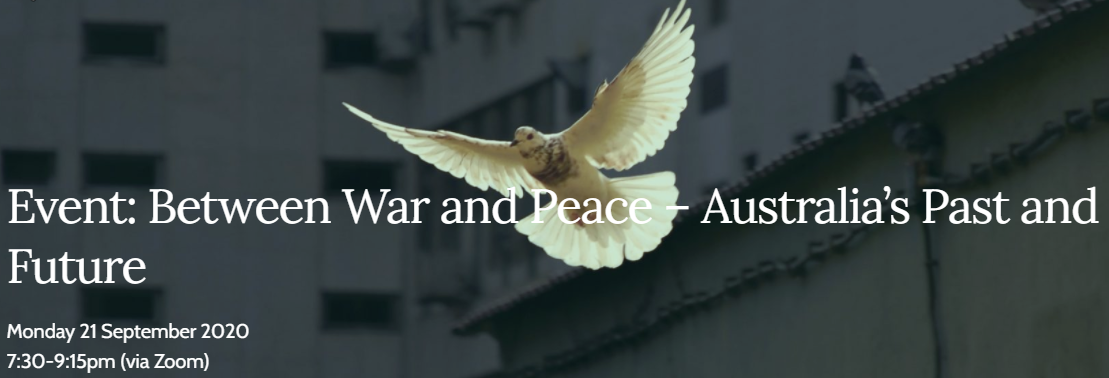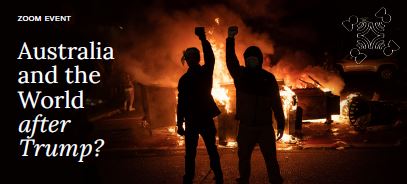Conversations at the Crossroads
HOW WE GOT GOING
Late last year I started having one-to-one conversations with a number of friends, including public intellectuals and fellow activists and former students now well into their respective careers.
They are all in different ways actively engaged with social issues, be it climate change, environment more broadly, indigenous rights, poverty and unemployment, refugees, civil liberties, the US alliance, security policy, overseas aid and development, and much else. Others have more general concerns to do with the state of the nation and the world.
With each of them I raised a key question: might this be the right time to launch a new initiative centred on conversation? Why conversation? Not because it is a substitute for action and advocacy. Rather because it is the necessary catalyst and most powerful tool we have for creative and effective social change.
The response I got was very encouraging, though with such sharp minds there were inevitably many questions. And then Covid-19 intervened. The face-to-face conversations stopped, but not the flow of ideas and exchanges. On the basis of these responses, I prepared a discussion paper which helped set the wheels in motion. We now had a good twenty people strongly supportive of the initiative, with several of us well connected in different social sectors.
WHO WE ARE
We are primarily located in Victoria, but supported by kindred spirits in other states, and with some of us located outside Australia. Our initial focus is on the national conversation but with a clear ambition to cultivate international links. A few of us are located in other countries.
We have established a 12-member organising team who are working closely together. They bring with them their diverse backgrounds, much energy and valuable professional and technical skills. Learn more about our team here.

(L-R: Joseph Camilleri, Rana Ebrahimi, Benjamin Freeman).

(L-R: Jackson Irwin, Kristian Camilleri, Susan Lengyel).

(L-R: Alexander Hurcombe, Jane Hosking, Henry Dalgleish).

(L-R: Greg Healy).
OUR PROJECT
Conversation at the Crossroads ([email protected] for short) started off with a number of in-house conversations, followed by two lively and informative semi-public events:
- Rising Economic Inequality in Australia (30 participants)
- Between War and Peace: Australia’s Past and Future (120 participants)

This has set the scene for an exciting Public Launch on 5th November 2020 7.30pm AEDT:

PLANS FOR THE NEXT 12 MONTHS
- A series of podcasts. Will feature talks or interviews with socially engaged, well-informed, captivating guests. Podcast will be of 15 to 20 minutes duration each, and widely accessible through our website and Facebook page, and other social media channels.
- Two-part series on the future of energy production, consumption and policy in Australia. An information session followed by a strategy session, with a possible third session on implementation of strategies. Aim: to gain a better understanding of the obstacles to accelerated reliance on renewable sources of energy, and to the necessary shift in consumer habits.
- Small discussion groups of 8-10 participants. They will to get off the ground as soon as Covid restrictions allow. They will meet fortnightly in a place of their choosing (e.g. home, pub, restaurant) to discuss a topical theme (material/readings provided). Over time participants will be able to shift to different groups and topics. Ideas emerging from these discussions will be widely shared among and beyond these groups.
- Politics in the Park / Politics in the Pub. People will be invited to gather at a picturesque park to eat, drink and chat informally around a theme of interest to people who like to discuss politics. his would be more of a social catch up of people who like to discuss politics. A different format will be used for Politics in the Pub.
- An innovative series on the critical issues facing post-Covid Australia led by Professor Joseph Camilleri. This highly interactive event, planned for April-May 2021, will be both face-to-face and virtual, with people able to register from across Australia. It will involve a mix of formats, including interactive presentations with Q&A, small group discussions, interviews and conversation with leading Australian and international experts, skill enhancement, and in between sessions field work involving surveys and focus groups.
WHY IT MATTERS
This is a unique moment in the Australian story. This moment is even more dramatic if we think of the profound transition the world is going through.
This is a moment of unprecedented risk and extraordinary opportunity.
As our mission statement says:
The political and economic order that has held sway in recent decades is crumbling. It is crumbling under the weight of financial crises, pandemics, ecosystems under threat, rising inequalities, indigenous peoples still waiting for justice, and now new threats, including mass surveillance of citizens and the rising tide of populism and extremism.
But there are also promising signs:
More and more people, young and old, of different backgrounds, sense that things have gone awry. . . Many are beginning to respond in creative ways. This is fertile ground for a renewed vision of the possible.
Many voices are now calling for a future that privileges inclusion, not exclusion; the common good, not private gain; empathy, not indifference.
It is time for conversations that matter
Informed conversation is no longer a luxury of the few, but a practical necessity for the many. It is the only pathway to consultative, democratic change. We need to come together to deliberate on the challenges we face as communities, as the nation, the world, the planet.
To use a medical analogy, we need conversation to diagnose the ailment, and then consider the right treatment. We also need to join the dots, and place each challenge in a larger context. To give an example: yes, climate change is an environmental issue, but it is closely entwined with the way organise our economies and political institutions work, our consumption and waste habits.
That is why we approach conversation flexibly, creatively, ambitiously:
- We must explore the causes not just the symptoms of our predicament
- We need to see the big picture
- If the problem is no just local, but national and international, even global in scope, so must be the solution
- We must attend to roadblocks that stand in the way: review existing mindsets and institutions and make them fit for purpose
- Conversations that inspire and empower need access to reliable information and diverse learning and other skills
- Of course, we can't do any of this alone - we have to engage with others - reach out to the professions, business, unions, community organisations, and diverse local and international networks.
To be meaningful, conversation has to be human and respectful. In conversation people develop trust, build community, and value each other's friendship and support. Conversation thrives when it makes use of the spoken and written word, food, the arts, literature, sport and much else.
This is the distinctive approach that Conversation at the Crossroads brings to the table.
It affirms conversation as an ethical and practical imperative of our time.
HOW YOU CAN HELP
- You can make Conversation at the Crossroads financially viable. We appreciate large and small contributions
- You can encourage others to make a contribution
- You can spread the word about Conversation at the Crossroads and its activities
- You can participate in its activities


.jpg)






